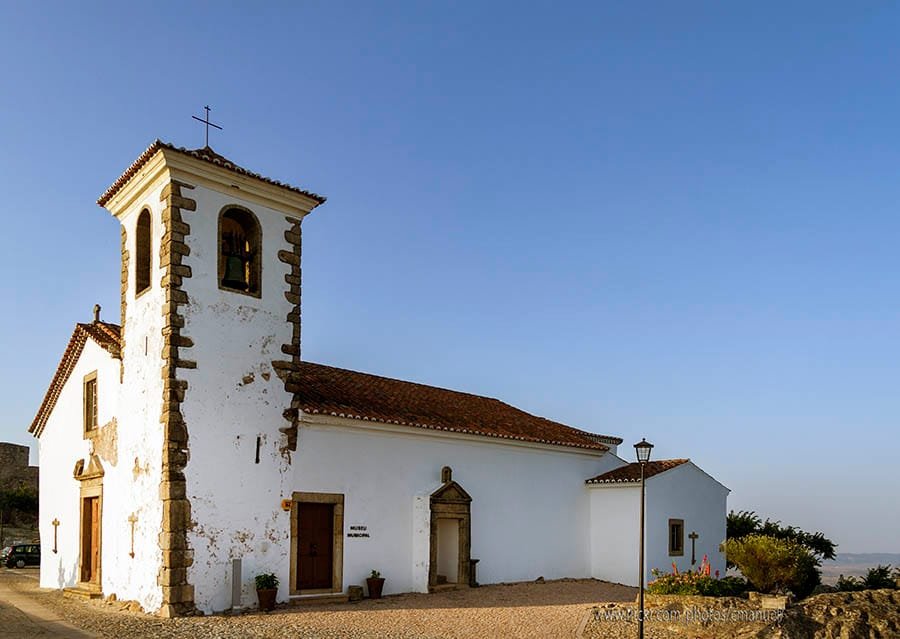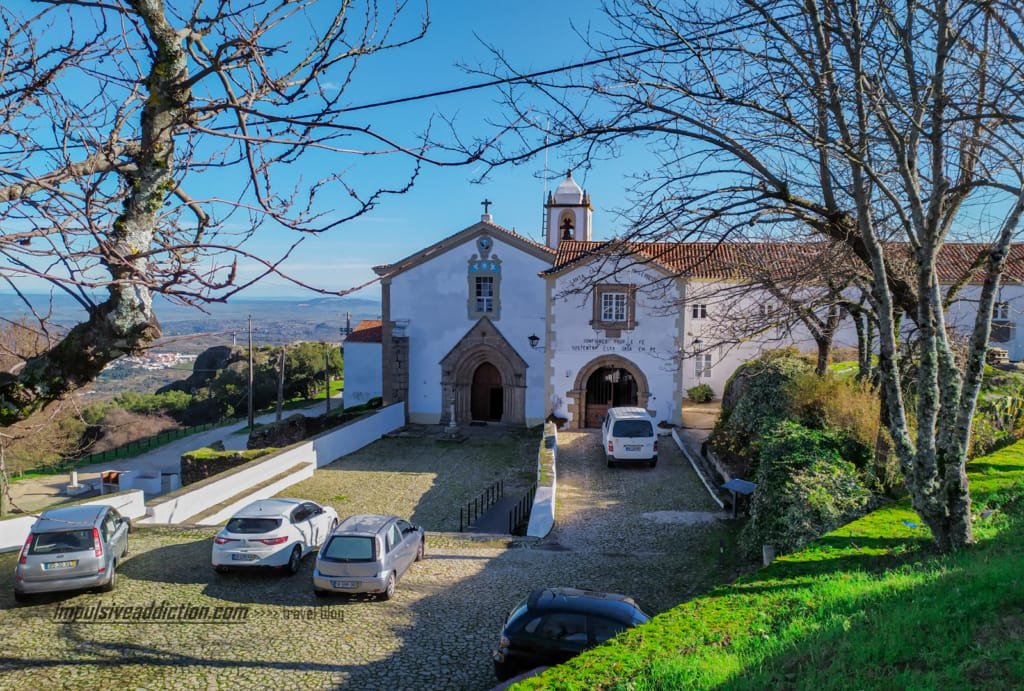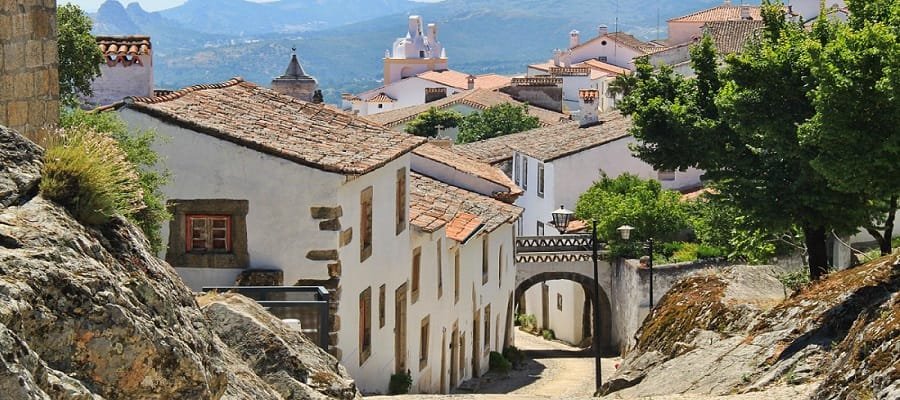Marvão
Marvão, a historic village situated in the Alto Alentejo region, boasts a long and rich history, with traces of occupation dating back to pre-Roman times.
Since the Roman period, armies have utilized its strategic location atop a rocky escarpment at 860 meters above sea level. They used the area for military purposes because it controlled the plains and was close to the Spanish border.
The Moorish influence is also significant in Marvão’s history. The village was named after Ibn Marwan, a Muslim commander. In the 9th century, he transformed the site into a fortress. During Islamic rule, Marvão served as an important defensive point until Christian forces conquered it during the Reconquista.
Marvão Castle, fortified during the reigns of King Sancho I and King Dinis, played a key role in the border wars with Castile. It also played an important role during the Restoration War and the Napoleonic Wars.
As time passed, its military importance diminished, particularly from the 19th century onwards. However, the village has remained well-preserved, with its walls and medieval architecture intact. This makes it one of the best-preserved examples of historic fortifications in Portugal today.
Main Tourist Attractions
Marvão Castle
The medieval castle is the village’s most notable landmark. Built between the 13th and 14th centuries, it offers impressive panoramic views of the surrounding landscape. Its towers and walls bear witness to historical battles and are ideal for walks and exploration.


Church of Santa Maria
This 13th-century church, located within the walls, was converted into a museum and now houses the Marvão Municipal Museum. It displays archaeological and ethnographic collections, including ceramics, ancient tools, and remnants of Roman and medieval presence.


Convent of Nossa Senhora da Estrela
Situated just outside the village, this 16th-century convent is known for its Renaissance style and local devotion to the region’s patron saint.


Walls and City Gates
Walking along Marvão’s walls provides a unique opportunity to explore the village’s military history while enjoying unparalleled views of the region. The City Gates, such as the Porta de Ródão, are iconic landmarks.





Restaurant Recommendations
Varanda do Alentejo: Located in the heart of the village, this restaurant offers typical Alentejan cuisine, such as lamb and goat stew, in a cozy setting.
Sever Restaurante: Situated near the Sever River, this restaurant provides a gastronomic experience that blends traditional flavors with a modern touch. Highlights include game dishes and fresh fish.
Events and Festivities
Marvão is also known for hosting festivals and cultural events that celebrate its traditions:
Marvão International Music Festival: One of the region’s most important cultural events, this festival takes place annually in July and August, bringing together renowned musicians and orchestras, with concerts held in historic settings like Marvão Castle.
Chestnut Fair: In November, the Chestnut Fair draws visitors from across the country to celebrate autumn and the harvest season, with tastings of chestnuts, local products, and cultural entertainment.
Holy Week: The most significant religious celebration in the village, Holy Week in Marvão is marked by traditional processions and solemn ceremonies that wind through the village’s cobbled streets.
Tips for Visitors
For those planning to visit Marvão, it’s important to note that the village is small and has a peaceful pace, ideal for those who want to explore leisurely. It’s recommended to visit outside the hottest months of summer, as temperatures can be high.
Due to its elevated location, walks can be somewhat challenging, so comfortable footwear is essential. Additionally, Marvão is perfect for a weekend getaway, with several charming inns and hotels offering authentic and comfortable accommodations.
Exploring Marvão is a journey into the past, where history, culture, and nature come together to offer an unforgettable experience.